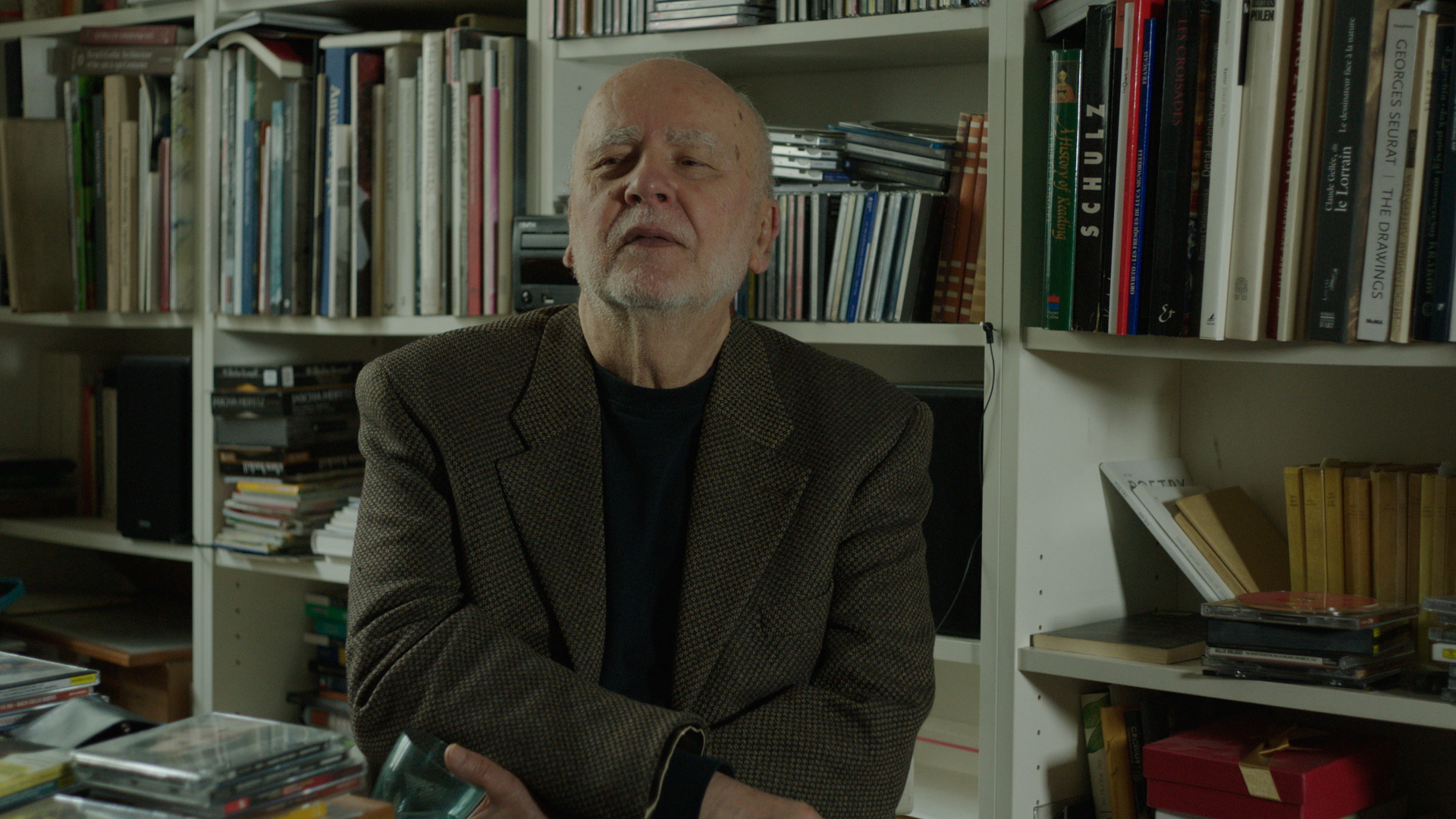NEXT STORY

France rejects my poetry
RELATED STORIES

NEXT STORY

France rejects my poetry
RELATED STORIES


|
Views | Duration | |
|---|---|---|---|
| 31. Solidarity, Solitude | 48 | 01:55 | |
| 32. The Flying University | 43 | 03:09 | |
| 33. The decline of communism | 40 | 03:00 | |
| 34. Martial law puts an end to my dreams | 45 | 02:44 | |
| 35. Happy times in Paris | 57 | 02:59 | |
| 36. France rejects my poetry | 49 | 04:46 | |
| 37. Paris-Houston | 47 | 02:24 | |
| 38. Tremor | 45 | 02:55 | |
| 39. My 'American episode' | 54 | 03:35 | |
| 40. My poem appears in The New Yorker | 53 | 03:38 |


Paryż był dla mnie... ja znałem trochę Paryż, ale słabo, tak że te pierwsze miesiące pobytu w Paryżu to była ogromna ciekawość miasta – chodziłem właśnie bez przerwy na długie spacery po śródmieściu, po Paryżu, po tych centralnych dzielnicach Paryża, a jednocześnie zacząłem pisać. Dość szybko wróciłem do pisania, chociaż na początku miałem trochę trudne warunki mieszkaniowe, bo nie mogliśmy z powodów rozwodu... Moja narzeczona jeszcze nie była rozwiedziona, tak że to skomplikowało sprawę. Nie mogliśmy jeszcze razem mieszkać, bo było dziecko. I mieszkałem bardzo skromnie i nie najlepiej. Ale mimo to zacząłem pisać i to był taki okres dziwnego szczęścia związanego i z, no co tu dużo mówić, z miłością, ale też z Paryżem, w którym byłem. To była taka ekstaza Paryżą, gdzie byłem no przechodniem tylko, nikt mnie tam nie znał, nie... Ale jakoś wtedy w ogóle nie myślałem o tym, że mam być znanym poetą. Zapomniałem o tym po prostu, byłem... byłem szczęśliwy, że... że żyję, że coś się zmieniło, że jestem w tak niezwykłym mieście. Ale także pisałem – to wtedy na początku napisałem jeden z moich zapewne najważniejszych wierszy, Jechać do Lwowa, który dla wielu moich czytelników jest takim może wierszem numer 1 spośród wszystkich moich wierszy. To jest taki wiersz, który ma w sobie i żal z powodu wyjazdu ze Lwowa, ale w tym jest i też żal z powodu wyjazdu z Krakowa. Ten wiersz kumuluje w sobie pewne żale, ale też wybucha jakąś ekstazą, bo taki... I właśnie jeżeli wcześniej mówiłem o tym, że urodziłem się w najdłuższy dzień roku, ale wszyscy się pakowali, tak samo ta podobna sprzeczność jest w tym wierszu – jest rozpacz, bo to jest wiersz o śmierci – śmierci Lwowa, o Shoah, o zniszczeniu, ale też o życiu, że tak jakby to jedno z drugiego wyrastało.
For me, Paris was... I knew it a little but not well so those first few months of my stay there I was fascinated by the city. I went on frequent, long walks through the central Parisian districts and at the same time, I had begun to write. I resumed my writing quote quickly although initially, my living conditions were a bit difficult because we were hampered by the divorce... my fiancée wasn't yet divorced so that complicated the issue. We couldn't live together yet because there was a child involved, so I lived very modestly but not in a good way. But despite that, I began to write and it was a time of a strange kind of happiness associated with, well, there's not much to say, with love but also with Paris where I was. There was a kind of Parisian ecstasy where I was just a passer-by and where no one there knew me. At the time, I didn't think that I would be a famous poet. I'd forgotten all about that and I was just glad to be alive, that something had changed, that I had found myself in such a unique place. But was writing, too, and it was then in those early days that I wrote probably one of my most important poems, Jechać do Lwowa [Going to Lwów] which for many of my readers is possibly my number 1 poem among all the ones I've written. It's a poem expressing sorrow at leaving Lwów but also sorrow at leaving Kraków. This work gathers within it certain sorrows but it also explodes with a kind of ecstasy because as I said before, I was born on the longest day when everyone was packing up to leave, and so in this poem there's a similar contradiction – there's despair because it's a poem about death, the death of Lwów, the Shoah, destruction but it's also about life, how one grows from the other.
Adam Zagajewski (1945-2021) was a Polish poet, novelist, translator and essayist. He was awarded the 2004 Neustadt International Prize for Literature, the 2016 Griffin Poetry Prize Lifetime Recognition Award and the 2017 Princess of Asturias Award for Literature. He is considered as one of the leading poets of the Generation of '68 or the Polish New Wave (Polish: Nowa fala) and is one of Poland's most prominent contemporary poets.
Title: Happy times in Paris
Listeners: Andrzej Wolski
Film director and documentary maker, Andrzej Wolski has made around 40 films since 1982 for French television, the BBC, TVP and other TV networks. He specializes in portraits and in historical films. Films that he has directed or written the screenplay for include Kultura, which he co-directed with Agnieszka Holland, and KOR which presents the history of the Worker’s Defence Committee as told by its members. Andrzej Wolski has received many awards for his work, including the UNESCO Grand Prix at the Festival du Film d’Art.
Tags: Jechać do Lwowa
Duration: 2 minutes, 59 seconds
Date story recorded: March 2018
Date story went live: 25 April 2019